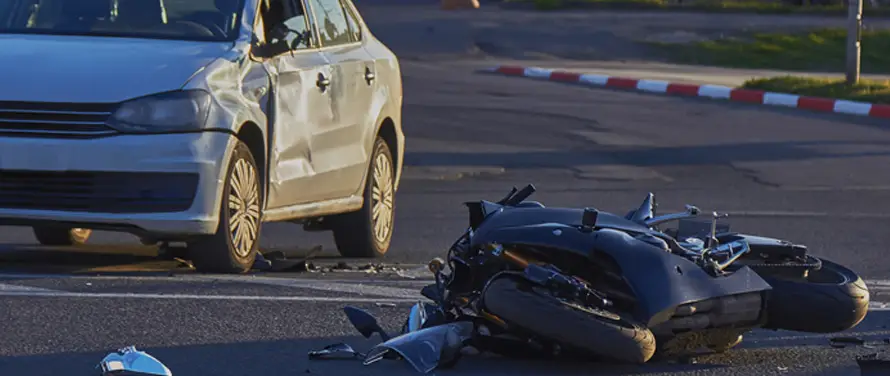Single-Car Accidents
Single-Car Accidents An auto accident can happen for many reasons. Weather conditions, road surfaces, and mechanical issues can cause or contribute to a traffic accident.
TrafficAccidents.com is a free resource and guide for those who have suffered an injury caused by a traffic accident and don’t how to receive compensation.

Car accidents are common. In 2019, the most recent year with data, the U.S. saw nearly 6.8 million car accidents. About 1.9 million of these accidents resulted in at least one non-fatal injury, while over 33,000 resulted in at least one death.
As a result of these accidents, over 36,000 Americans died in an auto accident and over 2.7 million people were injured that year.
After a traffic accident, you might not immediately know what to do. A car accident can injure and traumatize you. But some common-sense steps can help you to avoid worsening the situation. Your actions could even improve your claim to compensation for any injuries you sustained.
Here are some steps to take after a car accident.
Every state in the U.S. requires drivers involved in an injury-producing accident to stop. If you fail to stop, prosecutors can charge you with a hit-and-run. This exposes you to possible criminal sanctions like jail, fines, and restitution.
Leaving the scene of an accident also exposes you to possible civil penalties. Fleeing an accident can show consciousness of guilt and a jury could find you liable for the resulting damages.
Every state also requires you to render aid, if possible. Your duty includes reasonable steps to assist anyone who suffered a traffic injury, including providing first aid or calling an ambulance. If you fail to render aid, the state could charge you with a criminal offense.
Every state requires you to report an accident that results in an injury or death. In most states, you must report the accident to the local police or state highway patrol.
Calling the police from the scene of the accident satisfies your legal duty. It also initiates an accident investigation that could provide you with essential information when you seek compensation for your injuries.
For example, an investigating officer might assign fault for the accident to the other driver. The other driver’s insurance company would have difficulty disputing this finding of fault from an experienced police officer.
When police interview you about an accident, tell the truth. Lying to the police during an investigation exposes you to potential charges of obstruction of justice.
Lying to investigators can also jeopardize a future injury claim for your injuries. When your statements to the police conflict with the evidence and your statements at trial, the insurance defense lawyer will tear your testimony apart.
If your injuries permit, you should document the accident scene. Some ways to document the scene include:
This documentation might provide critical evidence as you seek compensation for your injuries.
To obtain compensation, you will need to prove the other driver acted negligently. You will likely need evidence, like photographs of skid marks or witness testimony to prove how the accident happened.
To obtain compensation for your injuries, you will need the name and insurer of the driver who caused the accident.
In many places, the investigating officer will collect the information and pass it to each driver involved in the accident. But in other locations, you will need to exchange information with the other drivers directly.
Your auto accident compensation will be based on your injuries. If you seek medical treatment, you can boost your claim for compensation in a few ways:
When Most injury lawyers offer a free consultation. You will not be obligated to hire a lawyer if you schedule a free consultation. You can use the free consultation to evaluate your legal options after a car accident.
The lawyer will listen to your story and assess your likelihood of securing compensation for your injuries. Even if you do not plan to pursue an insurance claim or lawsuit, talking to a lawyer can help you understand these options.
To learn more about your legal options for pursuing compensation after a car accident, complete our consultation form or call our team directly. We’ll help to match you up with a skilled lawyer.
In most states, you are legally obligated to notify your insurance carrier about a collision, however, it is best to do this after consulting with a traffic accident attorney.
Single-Car Accidents An auto accident can happen for many reasons. Weather conditions, road surfaces, and mechanical issues can cause or contribute to a traffic accident.
COMPLETE THE FORM TO BE CONNECTED WITH AN ACCIDENT ATTORNEY
Thank you for your inquiry but there are no matches for you at this time. Please come back later and try again.
Attorney Advertising. TrafficAccidents.com is a legal marketing website that connects consumers with independent attorneys. The information on this site is for general informational purposes only and is not legal advice. Submitting information does not create an attorney-client relationship. Results are not guaranteed and vary based on the facts of each case.